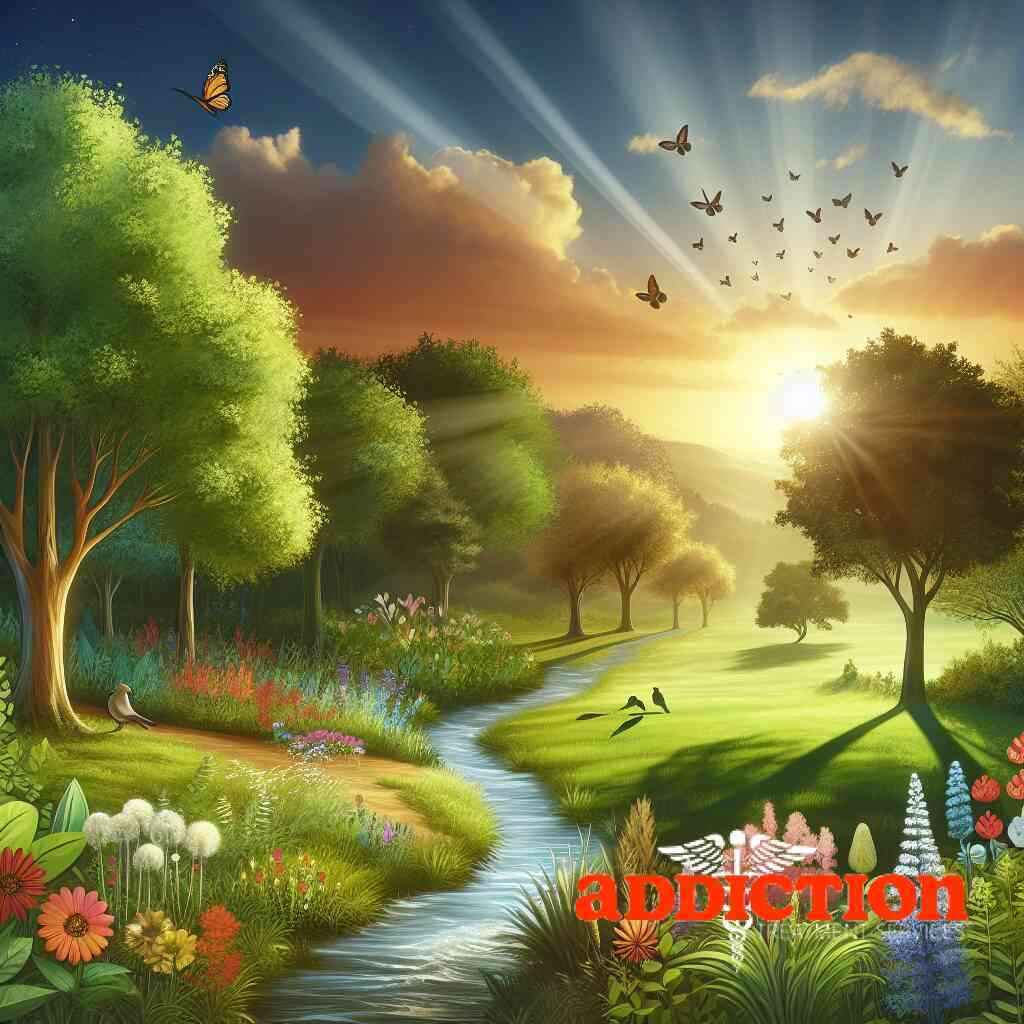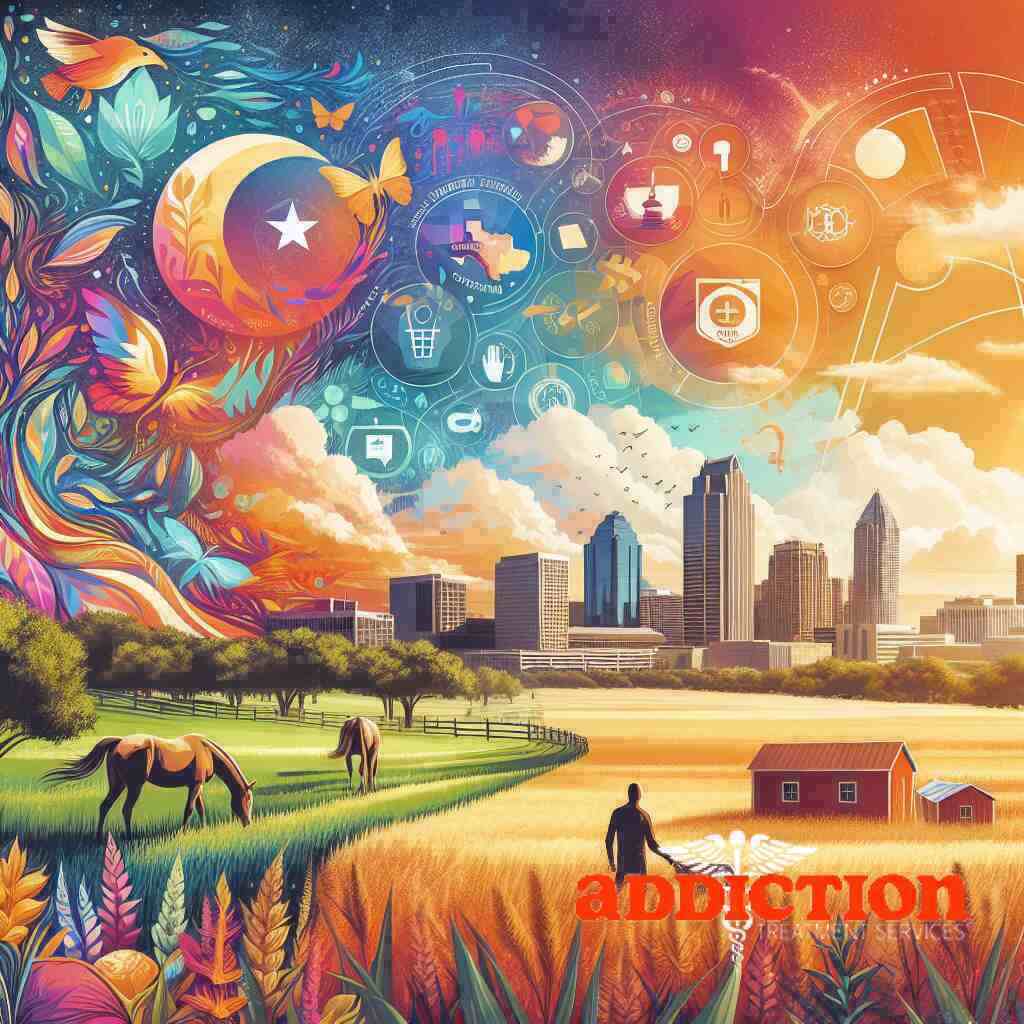 Posted On: 07/16/2025
Posted On: 07/16/2025Introduction to Your Recovery Odyssey
Mapping the Path: Understanding Addiction Recovery
Understanding the intricate landscape of addiction recovery requires an appreciation for the nuanced approaches available through addiction recovery strategies. The journey is not linear but rather a winding path that includes tailored interventions and support mechanisms. Navigating the complexities of substance use disorders means acknowledging the unique challenges each individual faces. As individuals embark on this critical journey, recognizing diverse treatment modalities, from detoxification services to behavioral health approaches, is paramount. To map an effective path, one must also consider the role of comprehensive recovery strategies that balance medical, psychological, and social support systems.
The Compass of Compassion: Family Involvement in Recovery
A pivotal component of successful addiction recovery is the role of family support in recovery. A supportive family environment provides the emotional anchor that bolsters individuals in their quest for sobriety. Family members play a vital role in early intervention and long-term recovery, offering love and understanding. Encouraging dialogue and education about substance misuse can dismantle misconceptions and build empathy. This supportive dynamic can significantly impact an individual’s motivation and resilience, ultimately enhancing the healing process. Therefore, integrating family support services within addiction treatment plans isn’t just beneficial; it’s transformative.
The Science Behind Success: Innovative Recovery Approaches
Today’s addiction treatment landscape is enriched by exploring addiction treatment innovations. These modern methodologies emphasize personalized care models and advanced technological interventions, fostering effective addiction treatment outcomes. Innovations in therapy and treatment settings empower recovery by addressing the multi-faceted nature of addiction. Progressive facilities stay ahead by adopting research-backed techniques, from medication-assisted treatments to dual diagnosis programs. As these approaches evolve, they highlight the importance of a holistic framework that incorporates mental health services alongside substance abuse treatment. Leveraging these insights represents a significant step forward in breaking the cycle of addiction.
The Quintessential Compass: Guided Paths to Sobriety
Charting New Territories with Comprehensive Recovery Strategies
The journey of addiction recovery is a deeply personal endeavor, requiring comprehensive recovery strategies to chart new territories. These strategies are designed to address the multifaceted nature of substance use disorders, integrating medical, psychological, and social support systems into a cohesive approach. By utilizing a combination of detoxification services and behavioral health interventions, individuals find paths suited to their unique needs. This multi-layered approach not only aids in addressing the immediate challenges of addiction but also sets a foundation for long-term success by anticipating potential obstacles along the way. The integration of diverse elements – from medication-assisted treatments to community support networks – ensures that recovery remains a sustainable endeavor throughout life’s changes.
Within this framework, early intervention plays a crucial role. Identifying the rehabilitation options for drug and alcohol addiction means understanding the importance of timely and appropriate responses to signs of withdrawal and other initial hurdles. By aligning personal recovery paths with proven methodologies, a dynamic blueprint for healing emerges, considering not only immediate needs but also fostering resilience against future challenges.
Holistic Healing: Balancing Mind, Body, and Spirit
Holistic healing forms an integral part of addiction recovery, balancing mind, body, and spirit through interconnected practices. This approach recognizes the wide-ranging impact addiction has on every aspect of an individual’s life. By focusing on holistic addiction recovery, the aim is to facilitate a full-spectrum healing process that encompasses mental well-being, physical health, and spiritual growth. Treatment facilities that incorporate holistic methods often see better engagement from individuals, as they find solace in activities such as yoga, meditation, and nutrition counseling.
These practices not only help manage stress and promote mental clarity but also enhance physical recovery by reducing withdrawal symptoms and boosting overall health. Holistic interventions provide tools for individuals to rediscover their passions and strengths, cultivating a sense of purpose and motivation essential for sustained recovery. With a comprehensive approach that harmonizes these elements, the treatment programs become more than just a means to an end; they transform into journeys of profound personal growth and self-discovery.
Synchronizing Treatment Plans: Dual Diagnosis Recovery
The complexities of addiction necessitate treatment plans that are sensitive to co-occurring disorders, making dual diagnosis recovery strategies critical for many. Addressing not just the addiction but also underlying mental health issues such as depression or anxiety, is a cornerstone for effective treatment. Trained professionals work meticulously to develop synchronized treatment plans that treat both disorders simultaneously, ensuring neither aspect is neglected.
For patients, understanding the role of mental health in recovery is key to unraveling the symptoms shared between addiction and mental health disorders. Through integrated treatment approaches, individuals are better equipped to tackle the roots of their challenges, reducing the risk of relapse and promoting enduring recovery outcomes. Emphasizing therapy and counseling alongside medication management, dual diagnosis programs offer comprehensive support that recognizes and respects the intricate dance between mental health and substance use disorders.
By offering personalized care pathways tailored to each individual’s unique situation, dual diagnosis recovery fosters an environment where personal insights and therapeutic breakthroughs become the norm. In this empowering space, individuals learn not only to manage their addictions but also to thrive beyond them, experiencing a profound transformation that extends through every facet of their lives.
1 – Detoxification Journeys: Cleansing the Body and Mind
Reinvigorating the Pursuit of Health: Detoxification Methods
In the realm of addiction recovery, detoxification journeys are pivotal, serving as the springboard for health and sobriety. Effective methods for detoxification involve processes that safely and systematically eliminate harmful substances from the body, promoting physical and mental rejuvenation. Often, this stage is accompanied by medical supervision in specialized treatment facilities, ensuring individuals navigate the initial challenges of withdrawal safely. Through meticulously crafted detox protocols, individuals rediscover health and balance, setting a strong foundation for their recovery. Understanding these detoxification methods is crucial for appreciating the broader journey of addiction recovery services.
Overcoming Initial Barriers: Managing Withdrawal Symptoms
Withdrawal symptoms represent significant barriers encountered during the initial phases of recovery, often necessitating expert management. Detoxification and withdrawal management techniques are designed to alleviate these symptoms, ranging from mild discomfort to severe physical reactions. Proper management underscores the importance of professional oversight, ensuring safety and efficacy as individuals traverse these hurdles. Strategies to manage withdrawal often involve medication-assisted treatments and behavioral health support, exemplifying a holistic approach to dealing with substance misuse. By overcoming these barriers effectively, individuals pave the way for a more stable and less disruptive transition into deeper stages of recovery.
Laying the Foundation: Early Interventions in Addiction
The success of a recovery journey often hinges on timely and pragmatic early interventions in addiction. Identifying the need for addiction recovery services at the outset allows for immediate action, reducing the prolongation of substance use disorders. Comprehensive recovery strategies involve identifying signs of withdrawal early and implementing necessary interventions promptly. Such early interventions build resilience, embedding a proactive approach into the recovery process. By laying this groundwork, individuals are better prepared to confront future challenges, supported by an environment conducive to healing and growth. This foundational approach is critical in paving the way for enduring recovery success.

2 – Residential Rehabilitation: Retreats for Resilience
Healing in Homeliness: Residential Recovery Solutions
Residential treatment centers offer a nurturing environment that feels like a home away from home. Such residential treatment for addiction recovery provides a structured setting where individuals can focus entirely on healing without outside distractions. These facilities are equipped with a multidisciplinary team of professionals who personalize care plans, ensuring that each patient’s needs are met comprehensively. The homely atmosphere cultivates a sense of belonging and safety, crucial for individuals to be open and receptive to recovery practices. Engaging in this intensive form of treatment offers participants the chance to build resilience and lay a formidable foundation for a substance-free life.
Structured Serenity: Effective Residential Treatment Plans
In the serene setting of residential rehabilitation, structured treatment plans play a pivotal role. Each day is mapped out, blending therapeutic sessions with ample time for reflection and self-care. This integrated approach employs innovative strategies tailored closely to individual experiences, emphasizing a blend of medical care, psychotherapy, and holistic practices. Facilities that excel at integrating behavioral therapy in recovery plans provide a seamless approach that addresses both the mind and the body. Patients benefit from a routine that includes group therapy, individual counseling, and specialized recreational activities, all of which are essential in preparing them for life beyond treatment. Such structured environments facilitate profound personal growth, equipping individuals with the tools necessary to sustain recovery.
Community and Connection: Fostering Recovery Support
A key aspect of residential rehabilitation is its focus on fostering a supportive community. Forging connections within this environment is integral to the healing process, as it provides a network of encouragement and shared experiences. Facilities often leverage the power of community support to bolster recovery efforts, emphasizing the value of collective strength in overcoming addiction. Participating in group activities and communal living conditions helps residents develop meaningful relationships, which become crucial allies in their recovery journey. This sense of community not only enhances the treatment experience but also forms a foundational support system that extends beyond the confines of the facility. In this collaborative spirit, individuals find their path toward resilience, empowered by the strength of those who walk alongside them.
3 – Outpatient Odyssey: Navigating Day-to-Day Recovery
Balancing Life and Healing: Outpatient Recovery Alternatives
Outpatient recovery alternatives present a unique pathway for individuals seeking to balance healing with their daily commitments. With the flexibility to continue work or school, outpatient treatment enables those grappling with substance use disorders to integrate recovery into their existing routines. These programs offer therapy sessions that emphasize developing coping strategies and resilience, essential for maintaining sobriety outside the confines of a residential setting. Leveraging navigating outpatient rehab choices empowers individuals to choose the optimal treatment that resonates with their personal lives, promoting both recovery and professional or academic fulfillment simultaneously. This integrative approach ensures that treatment is not a disruption, but a harmonious addition to one’s lifestyle, furthering the pursuit of holistic addiction recovery.
Intensive Outpatient Programs: Commitment Compounded
Intensive Outpatient Programs (IOPs) represent a commitment to recovery that acknowledges the need for comprehensive support while preserving personal freedom. These programs deliver structured therapy while allowing participants to return home once treatment concludes each day. IOPs are designed for individuals who require a higher level of care beyond traditional outpatient services, offering a concentrated approach that includes individual therapy, group sessions, and educational workshops. By participating in these programs, individuals gain access to diverse treatment modalities, from medication-assisted treatments to structured therapies addressing both addiction and mental health challenges. This compounded commitment fosters resilience against relapse while instilling a sense of agency and self-determination in participants as they navigate their recovery journey.
Flexibility in Recovery: The Outpatient Advantage
The true advantage of outpatient treatment lies in its inherent flexibility, offering a lifeline to those at varying stages of recovery. This modality caters to individuals who may have completed residential treatment and seek continued support, as well as those initiating recovery while managing personal responsibilities. The outpatient model affords participants the ability to tailor treatment to fit their unique needs, creating a personalized recovery path conducive to long-term success. Understanding effective detox strategies for newcomers ensures individuals can safely navigate through the recovery process. Facilities offering detoxification and withdrawal management ensure that individuals can safely transition through the initial phases of sobriety within a setting that adapts to their lifestyles. By emphasizing personalized care, outpatient treatment centers empower individuals to thrive within their communities, bolstered by robust support networks designed for sustainable recovery.
4 – The Pillars of Support: Group Therapy Dynamics
Harnessing Community Power: AA and NA Meetings
The journey to addiction recovery is strengthened immeasurably by the supportive power of group therapy. Among the most enduring and effective forms are Alcoholics Anonymous supportive meetings and Narcotics Anonymous gatherings, which serve as a beacon of hope for individuals at various stages of recovery. These meetings offer a non-judgmental space for sharing experiences and forging connections with others on similar paths. Participating in AA and NA helps to cultivate a collective resilience, with shared stories offering both solace and wisdom. Not only do these environments provide emotional support, but they also educate members on essential recovery tools to manage triggers and maintain sobriety effectively. In essence, harnessing community power through AA and NA meetings embodies a cornerstone of sustainable sobriety within addiction treatment services.
Behavioral Therapy in Recovery: A Collaborative Approach
Behavioral therapy is integral to modern recovery programs, offering strategic interventions that address the complex psychosocial aspects of addiction. By exploring therapy’s role in modern recovery, we see the transformative potential of cognitive-behavioral strategies. These approaches focus on modifying dysfunctional thoughts and behaviors, equipping individuals with coping mechanisms essential for dealing with stress and preventing relapse. Collaborative therapy models involve a synergy between individual therapy and group sessions, enhancing the therapeutic experience. Through interactive settings, participants learn to articulate their struggles while receiving feedback, fostering a communal learning environment. This collaborative approach not only supports healing but also instills a proactive mindset towards tackling addiction’s multifaceted challenges.
Relapse Management and Sustainability in Group Settings
Relapse is an unfortunate reality for many in recovery, but group settings offer robust relapse management strategies and support. These settings equip individuals with the tools necessary to navigate post-treatment challenges confidently. Implementing structured discussions on potential triggers and emotional cues empowers participants to anticipate and mitigate relapse risks. Furthermore, group dynamics foster accountability, as members are encouraged to hold each other to their commitments. This model of mutual support enhances recovery sustainability, creating a safety net for those wavering on their sobriety journey. By integrating these strategic measures within group therapy, the process becomes more than a meeting of minds; it transforms into a formidable defense against the cycles of addiction.

5 – Personalized Paths: Tailoring the Treatment Experience
Crafting Tailored Solutions: Personalized Treatment Plans
At the heart of effective addiction recovery lies the art of crafting personalized treatment plans that acknowledge each individual’s unique journey. Recognizing that every person’s circumstances and challenges are distinct, addiction treatment centers prioritize customizing strategies that address specific needs. Engaging in personalized care in Georgia for addiction ensures that the treatment is relevant and impactful, significantly enhancing the potential for success. By involving clients in the decision-making process, facilities can adapt various therapeutic modalities, seamlessly integrating them within a cohesive plan. This bespoke approach allows participants to engage in the recovery process with greater ownership and investment, fostering an environment where personal growth and healing can thrive.
Beyond standard protocols, personalized plans often incorporate innovative therapies that align with an individual’s preferences and goals. Whether it’s through expressive arts, physical activities, or alternative healing practices, these elements become integral components of the recovery journey. Such diversity in treatment options not only empowers individuals but also addresses the multifaceted nature of addiction. It ensures that no stone is left unturned in the pursuit of sustainable health, establishing a framework where each patient’s voice contributes to their road to recovery. Thus, personalization becomes a critical driver in not only attaining sobriety but also in sustaining it long-term.
Recovery Beyond the Clinic: Sustainable Practices
Sustainable recovery practices extend beyond the confines of clinical settings, encouraging individuals to embrace lifestyle changes that support enduring sobriety. Addiction treatment facilities champion this approach by equipping clients with robust toolkits tailored to navigate post-treatment life successfully. These toolkits often include strategies for managing triggers, cultivating healthy habits, and maintaining connections with recovery support resources. Through programs focused on life skills, individuals learn to integrate recovery into everyday living, transforming their environments into nurturing spaces where sobriety thrives.
Critical to this endeavor is the emphasis on community integration, as forming strong bonds with supportive networks plays a pivotal role in sustained recovery. By fostering relationships within community groups or participating in peer-led support sessions, individuals reinforce their commitment to sober living with the backing of a robust network. Facilities also encourage clients to engage in educational workshops that promote self-awareness and continuous learning about addiction and mental health. These proactive measures help individuals anticipate potential challenges and arm them with the resilience necessary to face them, ensuring that their recovery journey extends successfully beyond initial treatment.
Motivation and Mindset: Driving Individual Recovery Success
The psychological components driving recovery success cannot be underestimated, with motivation and mindset standing as pillars of enduring sobriety. Cultivating a resilient mentality involves fostering a positive outlook while embracing the process of healing wholeheartedly. Behavioral health services play a significant role in this area, offering cognitive and motivational therapies that reframe negative thought patterns into constructive ones. Encouraging self-reflection and goal-setting, these therapies help individuals harness their inner strength, setting the stage for transformative change.
Moreover, sustaining motivation throughout the recovery process is achieved by celebrating milestones and recognizing personal achievements. Facilities often integrate motivational interviewing techniques, which empower individuals to articulate their aspirations and insights actively. This approach not only enhances self-efficacy but also creates a feedback loop that reinforces progress, thereby fueling continued success. By emphasizing the importance of a growth-oriented mindset, addiction treatment services promote an empowering narrative where each individual takes charge of their journey, crafting a future marked by health, fulfillment, and freedom from substance misuse.
The Journey Forward: Embracing New Horizons
Lifelong Learning: Adapting to Recovery Evolution
Adapting to the evolving nature of recovery is akin to embracing a lifelong educational journey. This transformative process requires a commitment to continuous self-improvement and adaptability. Individuals engaged in addiction recovery pathways must consistently update their strategies and coping mechanisms to reflect current research and best practices in addiction treatment services. By fostering a sense of curiosity and open-mindedness, individuals position themselves to not only cope better with challenges that arise post-treatment but also thrive in a world without substance misuse. Encouraging educational opportunities and participation in workshops enables individuals to stay informed about emerging trends and techniques in recovery, fueling personal growth and long-term resilience. This process reaffirms their ability to lead enriched, sober lives while contributing meaningfully to their communities.
Curating Community: Building Robust Support Networks
The importance of curating a robust support network cannot be overstated in the pursuit of sustainable recovery from substance use disorders. Support networks are critical in providing the emotional and social scaffolding necessary for individuals to maintain their sobriety. Engaging with addiction treatment centers near you allows individuals to connect with others who understand their journeys, fostering a sense of belonging and camaraderie. These connections can be deepened by exploring specialized treatment options for veterans, which provide tailored support. Participating in peer support groups and comparing innovative rehab services near you enhances these networks by introducing varied perspectives and resources essential for enduring recovery success. These relationships act as both a safety net and a launchpad, encouraging individuals to share insights, celebrate victories, and collectively navigate the complexities of addiction recovery. Through community, individuals discover unparalleled strength and motivation, empowering them to conquer the trials they encounter along their recovery paths.
Narratives of Success: Inspiring Recovery Stories
Inspiration is a powerful catalyst on the journey to recovery, and narratives of success play a pivotal role in nudging individuals toward sustained sobriety. Sharing personal recovery success stories uplifts and empowers those in the throes of their battles with substance misuse, illustrating that recovery is indeed attainable. Addiction treatment services in Ohio, among others, often highlight such stories as a testament to the resilience and tenacity of individuals who have transcended addiction. These narratives provide not only hope but also practical strategies for overcoming challenges and embracing a healthier lifestyle. Through storytelling, the notion of recovery becomes tangible and relatable, instilling a sense of possibility and reinforcing the belief that one’s future is not dictated by past dependencies. By actively celebrating and learning from these stories, individuals find the inspiration they need to carve out their own victorious narratives of healing and growth.
Frequently Asked Questions
Question: How does family involvement enhance the process of addiction recovery services at Addiction Treatment Services?
Answer: Family involvement is pivotal to the success of addiction recovery pathways. At Addiction Treatment Services, we emphasize the role of family support as an emotional anchor that significantly bolsters an individual’s journey towards sobriety. By educating family members about substance use disorders through addiction recovery programs, misunderstandings are dismantled, and empathy is cultivated. This compassionate involvement acts as an enduring motivational force, enhancing the healing process. Integrating family support into addiction treatment centers ensures that recovery is a shared journey, increasing the overall effectiveness of the treatment and fostering sustainable recovery practices.
Question: What are some innovative recovery methods utilized in the comprehensive recovery strategies offered by Addiction Treatment Services?
Answer: Addiction Treatment Services champions innovative recovery methods that are integral to our comprehensive recovery strategies. These include personalized treatment plans that employ advanced technological interventions and medication-assisted treatments tailored to address specific needs. Our dual diagnosis recovery options address co-occurring mental health and addiction challenges, providing a holistic addiction recovery approach. By leveraging cutting-edge treatment modalities and continuous adaptation based on current research, we ensure that individuals receive effective addiction treatment that empowers their recovery journey exploration and motivates enduring success.
Question: How do the detoxification methods at Addiction Treatment Services set the foundation for a successful recovery journey exploration?
Answer: Detoxification methods at Addiction Treatment Services form a crucial first step in the recovery process by safely and systematically eliminating harmful substances from the body. This vital stage, conducted in specialized treatment facilities, lays the groundwork for physical and mental rejuvenation, thereby anchoring a stable path for comprehensive recovery strategies. With expert management of withdrawal symptoms, we ensure a smooth transition through initial recovery phases, addressing substance misuse comprehensively. These detoxification services are essential in the broader context of addiction recovery pathways we offer to create a robust foundation for a life of sustained sobriety.
Question: Can you describe the outpatient recovery alternatives provided by Addiction Treatment Services as discussed in the blog Exploring Top 5 Recovery Paths at Addiction Treatment Services?
Answer: In the blog post Exploring Top 5 Recovery Paths at Addiction Treatment Services, we delve into outpatient recovery alternatives that offer individuals the flexibility to blend their treatment with daily responsibilities. Our outpatient recovery programs offer therapy sessions focusing on building coping mechanisms and resilience necessary for maintaining sobriety in a real-world context. These include Intensive Outpatient Programs that provide structured therapy while allowing individuals to return home daily, ensuring participation that does not disrupt their responsibilities. Leveraging these outpatient options, we enable clients to integrate recovery into their lifestyle seamlessly, thus supporting a balanced recovery journey exploration instrumental for long-term success.
Question: How does Addiction Treatment Services approach relapse management strategies within the context of group therapy dynamics?
Answer: Relapse management is a critical component within the group therapy dynamics offered at Addiction Treatment Services. Our approach involves fostering solidarity in group settings that equip individuals with tools to anticipate and manage relapse triggers effectively. Through structured discussions and shared experiences in environments like AA and NA meetings, participants develop accountability and resilience against relapse. These interactions are enriched by behavioral therapy techniques, providing a supportive network that underscores recovery support resources. By integrating relapse management strategies into our comprehensive recovery strategies, we create a fortified framework that empowers individuals to maintain their sobriety with confidence.


